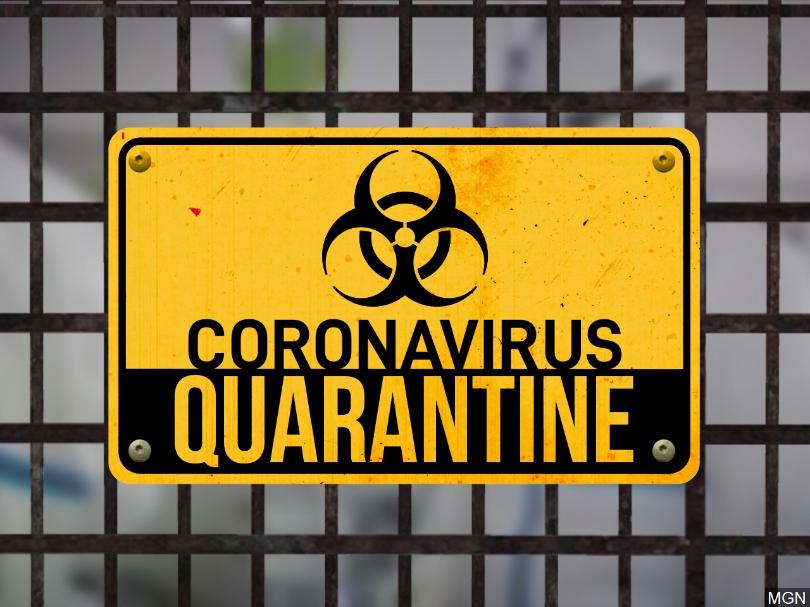
“A man who calls his kinsmen to a feast does not do so to save them from starving. They all have food in their own homes. When we gather together in the moonlit village ground it is not because of the moon. Every man can see it in his own compound. We come together because it is good for kinsmen to do so.”
― Things Fall Apart
How we handle ourselves in a crisis tells the rest of the world everything it needs to know about us as people. Times of trouble have a way of bringing all of our ethics, morals, hopes, fears, and latent insecurities to the surface, leaving us with nothing but a “deep, dark, truthful mirror” to gaze into and determine whether or not we’re proud of what we see. While most of us would like to believe that we’re inherently good, the onslaught of positive COVID-19 cases and subsequent shut-down of everything we’ve come to take for granted as a “First World” country have demanded that we prove it.
For some, this is easy, as they just keep on doing what they’ve always done and commit themselves to trying to lift up their fellow citizens at a time when politicians on both sides are still trying like hell to keep everyone divided. For others, this has proven to be more difficult as of late given the amount of hoarding, price gouging, and general disregard for decency that has been widely reported.
Sure, it’s natural for humans to go into self-preservation mode whenever their way of life is being threatened, but there has to be a way to take care of your own without impeding others’ ability to do the same. The fact that companies have to limit purchases to ensure a level playing field is sad not due to the limit itself. It’s sad, because it never occurred to people to impose the limit on their own terms. I’m sure that some hoarders would make the argument that they’re simply taking advantage of preexisting loopholes in the system, but I highly doubt that they would be too happy being on the other end of that scenario.
Beyond the trials of everyday people like you and I, certain celebrities have revealed themselves to be desperate for attention by any means necessary. For example, Gal Gadot recently pieced together a well-intentioned yet tone-deaf video featuring stars singing John Lennon’s “Imagine,” but listening to a bunch of millionaires ponder life without possessions when we all know that their conditions while in quarantine are different from the rest of us doesn’t come off well.
Musicians, however, have provided the most earnest form of respite I’ve seen yet, because many of them have begun streaming impromptu concerts via social media in an effort to elevate the spirits of those for whom live music qualifies as an “essential service.” Because someone’s creative drive or innate need to express themselves through art doesn’t just shut off during a work stoppage, the fact that they’ve found a productive way to keep the music alive at a distance should be supported just as any necessary retail establishment would be.
In the past week, I’ve seen Brad Paisley perform before a couch full of stuffed animals, Colin MacDonald of The Trews try to sing in his living room without disturbing his neighbors, and Robin Wilson of Gin Blossoms use this time to recapture what it felt like to play before a sparsely occupied bar room. They may not be feeding off the immediate reaction of an audience, but they’re delivering performances worthy of a sold-out crowd simply because that’s what they do as artists committed to the cause.
Who cares if some of their events have been hindered by technological glitches beyond their control (i.e. Garth Brooks)? At this point, anything is better than nothing, so I implore you to continue to support them as much as you can.
Thinking, writing, and obsessing about music has been a significant part of my life for more than a decade. Just like the musicians I interview, my need to express myself through my work doesn’t stop during a moratorium on public gatherings. I’ve simply altered my coverage for the time being in an attempt to keep my audience engaged with what we’re all going through.
Chinua Achebe was right when he said that people don’t come together for any other reason than it is good to do so, because there are intangible benefits to be gained from positive social interaction that can’t be duplicated through a screen. Even a lifelong introvert like me can admit that. How long this quarantine lasts is ultimately up to forces greater than any of us, but we should take care of each other in the meantime so that, when things do get put back together again, the damage isn’t irreparable.





Leave a comment